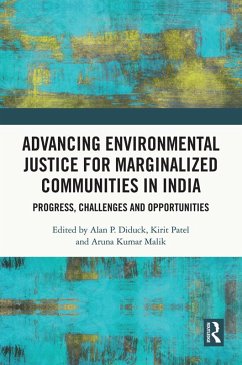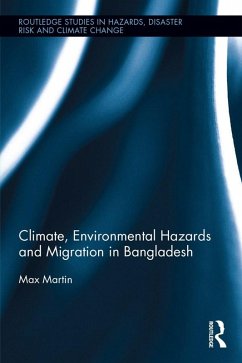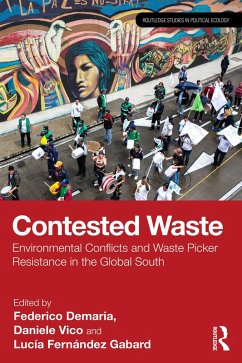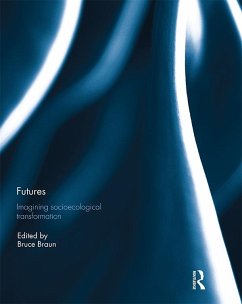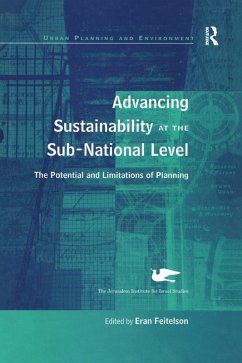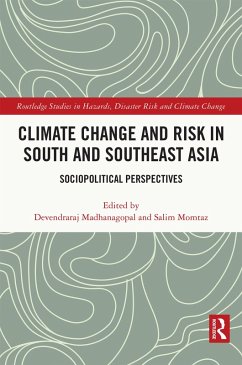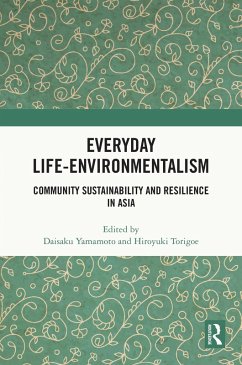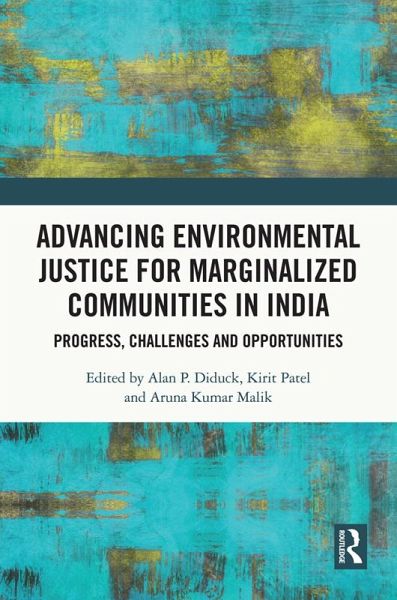
Advancing Environmental Justice for Marginalized Communities in India (eBook, ePUB)
Progress, Challenges and Opportunities
Redaktion: Diduck, Alan; Malik, Aruna Kumar; Patel, Kirit
Versandkostenfrei!
Sofort per Download lieferbar
41,95 €
inkl. MwSt.
Weitere Ausgaben:

PAYBACK Punkte
21 °P sammeln!
This interdisciplinary collection examines social equity and environmental justice in India. It assesses the effectiveness of environmental policies and institutions in rendering justice for marginalized communities while ensuring protection of the environment. It also analyses the influence of the neoliberal state and its political economies on the development and outcomes of these policies and institutions.The book provides a unique perspective on environmental justice because of its consistent emphasis on social justice, rather than the prevailing predominant analyses from legal or environm...
This interdisciplinary collection examines social equity and environmental justice in India. It assesses the effectiveness of environmental policies and institutions in rendering justice for marginalized communities while ensuring protection of the environment. It also analyses the influence of the neoliberal state and its political economies on the development and outcomes of these policies and institutions.
The book provides a unique perspective on environmental justice because of its consistent emphasis on social justice, rather than the prevailing predominant analyses from legal or environmental perspectives. It explores the themes of effectiveness and equity as they pertain to public policy instruments, such as environmental impact assessment, environmental licensing and enforcement, public hearings, and environmental activism strategies. The four interlinked dimensions of environmental justice, namely recognitional justice, procedural justice, distributive justice, and restorative justice, provide the core of the book's conceptual framework. The contributions draw on ideas and methods from development studies, environmental geography, environmental law and policy, natural resource management, public administration, and political economy The book concludes by considering planning, policy and institutional reforms and community-based initiatives that are needed to promote and protect environmental justice in India.
Offering an important reference for researchers and scholars, this book will appeal to those in law, geography, environmental studies, natural resource management, development studies, sociology, and political science. It will also be of interest to community-based researchers, environmentalists and other civil society activists, natural resource managers, and policy makers.
The book provides a unique perspective on environmental justice because of its consistent emphasis on social justice, rather than the prevailing predominant analyses from legal or environmental perspectives. It explores the themes of effectiveness and equity as they pertain to public policy instruments, such as environmental impact assessment, environmental licensing and enforcement, public hearings, and environmental activism strategies. The four interlinked dimensions of environmental justice, namely recognitional justice, procedural justice, distributive justice, and restorative justice, provide the core of the book's conceptual framework. The contributions draw on ideas and methods from development studies, environmental geography, environmental law and policy, natural resource management, public administration, and political economy The book concludes by considering planning, policy and institutional reforms and community-based initiatives that are needed to promote and protect environmental justice in India.
Offering an important reference for researchers and scholars, this book will appeal to those in law, geography, environmental studies, natural resource management, development studies, sociology, and political science. It will also be of interest to community-based researchers, environmentalists and other civil society activists, natural resource managers, and policy makers.
Dieser Download kann aus rechtlichen Gründen nur mit Rechnungsadresse in A, B, BG, CY, CZ, D, DK, EW, E, FIN, F, GR, HR, H, IRL, I, LT, L, LR, M, NL, PL, P, R, S, SLO, SK ausgeliefert werden.




